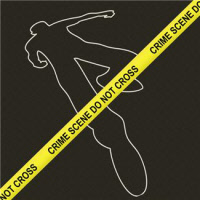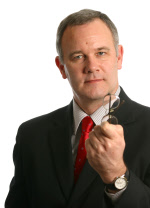Estate - About our trust and will service
We offer a full range of services to clients through our association network.
Wills play a vital role in the estate planning process. Without a will, the process of winding up and closing an estate becomes an onerous task to the surviving family/spouse. In the event a will has not been drawn up by the deceased, the laws of Intestate Succession will apply.
The Will
 In terms of South African law, the property of a deceased person can be transferred to (devolve upon) beneficiaries, either in terms of intestate succession (where the deceased dies without leaving a valid will) or testate succession (where the deceased dies and leaves a valid will).
In terms of South African law, the property of a deceased person can be transferred to (devolve upon) beneficiaries, either in terms of intestate succession (where the deceased dies without leaving a valid will) or testate succession (where the deceased dies and leaves a valid will).
To avoid the onerous implications of intestate succession, and to ensure that the deceased’s estate is dealt with in accordance with his/her wishes, a will must be drawn up. A will is therefore of the utmost importance in any estate plan.
For a will to be valid, certain requirements must be met.
-
The executor and any person who stands to benefit from the estate must not sign the will as a witness, as this will disqualify them from inheriting under the will or nullify their appointment as executor.
Contents of a will
Although the law is not prescriptive about what should be contained in a will. In practice, however, the following clauses are usually used to ensure a sense of conformity and clarity.
Declaration of testamentary intent
- This clause is basically the heading of the will. It declares the identity of the person whose will it is, giving their name, identity number, physical address, together with a statement that it is the testator’s last will and testament.
- If the deceased has previously drawn up a will or wills, a new will must clearly state that all previous wills are revoked. This is known as a revocation clause.
- Any person may be nominated as an executor or trustee of a deceased estate. Normally, a close friend, relative or professional person such as an attorney, accountant or trust company is appointed. More than one person may be appointed as executor or trustee. An executor or a trustee may benefit under a deceased’s will. The testator must grant the executor the power of assumption, which will entitle him/her to appoint another executor should the need arise. This means that he/she will be able to hand over the administration of the estate to another person.
- In the ‘specific bequests clause’, the testator stipulates which particular assets he or she wishes to go to a particular person.
- In this clause, the testator needs to describe how he/she wishes the balance of his/her estate to be devolved (passed over to successor or substitute).
- If the testator has appointed minor children as heirs, a testamentary trust is normally created in the will. This clause will specify the duties of the trustee and when the trust’s funds should be paid to the children.
- The testator can nominate anyone of his/her choice to be a guardian of his/her minor children. This person will, however, have to agree to be appointed as a guardian, and the appointment must be confirmed by the court.
- This clause is used where the testator wants to stipulate that the inheritance of any of his/her heirs will not
 form part of the assets of such heir’s spouse. It is common for wills provide that inheritances and bequests do not form part of the joint estate in the case of community of property and accrual marriages.The effect of these exclusions is that the beneficiary’s (heir) spouse does not obtain any legal right to benefit there from. Nothing prevents the beneficiary spouse from passing over such assets to the other spouse.
form part of the assets of such heir’s spouse. It is common for wills provide that inheritances and bequests do not form part of the joint estate in the case of community of property and accrual marriages.The effect of these exclusions is that the beneficiary’s (heir) spouse does not obtain any legal right to benefit there from. Nothing prevents the beneficiary spouse from passing over such assets to the other spouse.
- The testator may wish to be buried or to have their ashes strewn over a specific place. Although this is only a wish, the testator may express this in his/her will.
- At the end of the will, the testator must specify at what location the will was signed, the date on which it was signed, and the fact that the will was signed in the presence of witnesses (all being present at the same time).
- A codicil can be described as an appendix to a will. This normally drawn up where minor changes are required to a will and these changes to not warrant a complete re-draft of the entire will. Since a codicil is also a testamentary document, it must comply with the same requirements as a will for validity.
- Any deletion, additional, alteration or interlineations made to a will or codicil must be carefully and clearly marked or written and authenticated by the full signatures of the testator and the witnesses in the margin opposite. It is not permitted simply to initial such changes or additions.
Living will
If a person does not want to be kept alive by artificial means, he/she must specify this wish in a separate document called a living will. Since the person is still alive, their last Will and Testament is not yet a document that can come into effect, which means that a second document is needed to instruct medical practitioners not to keep the person alive artificially. A living will can also be used to determine that the person’s organs may be made available for medical research or donated for transplants.
Disqualified heirs
There are certain instances where heirs will be disqualified from benefiting from a will.
For example,
- People are not allowed to be witnesses to a will if they will benefit from that will.
- Should a person write a will on behalf of the testator, he/she will not be able to benefit from that will. Note that spouses of such persons will also be disqualified from receiving benefits; however, this will only apply if they were spouses at the time of execution of the will.
- Other categories of disqualified persons include someone who murdered the testator, or caused his/her death through negligence.
- Benefiting from a will includes receiving a bequest of inheritance, or simply being nominated as executor, administrator or guardian.
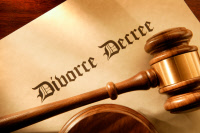 If a person dies within three months after his or her marriage was dissolved by a divorce or an annulment by a court, and that person had a will, it shall be implemented in the same manner as if the spouse had died before the date of the dissolution of the marriage. In other words the ex-spouse will not benefit simply because the testator did not get around to changing their will. This holds true unless it appears from the will that the testator intended to benefit his or her ex-spouse. If the person dies more than three months after his or her marriage was dissolved and has not drawn up a new will, then the ex-spouse will inherit in accordance with the provisions of the will.
If a person dies within three months after his or her marriage was dissolved by a divorce or an annulment by a court, and that person had a will, it shall be implemented in the same manner as if the spouse had died before the date of the dissolution of the marriage. In other words the ex-spouse will not benefit simply because the testator did not get around to changing their will. This holds true unless it appears from the will that the testator intended to benefit his or her ex-spouse. If the person dies more than three months after his or her marriage was dissolved and has not drawn up a new will, then the ex-spouse will inherit in accordance with the provisions of the will.
Estate Duty
Every person who dies has to pay estate duty. Estate duty is one of the most important taxes on wealth in South Africa. The aim of estate duty is to tax wealth when it is transferred from one person to another in the event of death (for example, a father dies and leaves all his assets to his children).
Estate duty tax is based on the value of a person’s estate when they die, and is payable to the Receiver of Revenue (SARS).
When a person dies, their ‘estate’ consists of:
- All property (for example, house, car)
- All deemed property (for example, a life assurance policy).
These amounts are added together and form what is known as the ‘gross estate.’ In other words, all assets owned by a person when they die, would form part of their gross estate.
Requirements of reporting an estate
The deceased’s surviving spouse or family will need to do the following to ensure that the winding up of the estate commences with as little hassle as possible.
There are three steps to this process:
Step 1: Obtain the following:
- Death certificate from the funeral undertaker

- The original will
- The deceased’s bank account details
- The deceased’s insurance policies
- Medical scheme details
- Salary information/pension details
Step 2: Keep all documents and correspondence relating to the deceased available (should they be needed)
Step 3: Hand over the above to the executor and/or institution or person who is responsible for winding up the estate.
To register an estate, the following documents must be lodged with the Master:
Death notice
- All assets of the deceased, along with their estimated values, are recorded on this prescribed form. The inventory does not necessarily have to be totally accurate, but it is important that the person completing the document tries to record all the assets belonging to the deceased. The inventory is usually completed by one of the deceased’s heirs.
- Step 1: Establish the particulars and values of all immovable property (for example, a house, buildings, rented property)
- Step 2: Establish the particulars and values of all movable property (for example, motor vehicles, jewellery)
- Step 3: Establish the particulars and values of all claims in favour of the estate (for example, proceeds of insurance policies and bank account credits)
Original will
Application to be appointed as executor
- Only the deceased is allowed to nominate an executor in his/her will. Before the executor is appointed, a formal application to be appointed must be completed on the prescribed form (which is available from the Master) by your executor and submitted to the Master. Should you die without a will (i.e. you die intestate) or your nominated executor is not available, your heirs will have to nominate an executor and complete and sign a nomination form for submission to the Master.
Distributing assets
- The final step to winding up an estate is where the executor transfers the deceased’s assets to his/her heirs, once payment of all the deceased’s debts and administration expenses have been made.
Administration expenses consist of the following:
- Master’s fees - these consist of a nominal prescribed fee payable to the Master, up to a maximum of R 7 000.00
- Advertising costs of the advertisements.
- Executor’s fees - calculated at a maximum rate of 3.5% plus 14% VAT (i.e. 3.99% in total).
- Assets such as vehicles, furniture and cash will be transferred to the deceased’s heirs by physically placing them in possession of these assets and getting them to sign a receipt.
- Assets like a house, flat or farm can only be transferred by registering these in the deeds office. The executor will therefore instruct a conveyancing attorney to register these assets in the name of the heir. The conveyancing attorney will have to be paid a fee, although no transfer duty will be payable by the deceased’s heirs.
Once all assets have been distributed to the nominated heirs, the executor will close the bank account opened in the name of the estate. All bank statements and heirs’ signed receipts will be submitted to the Master. The Master will then file these papers away for future reference and the executor will have completed the winding up of the estate.
How to determine estate duty
Estate duty is calculated on the “dutiable amount” of the estate, which is calculated according to the provisions of the Estate Duty Act.
The “dutiable amount” is determined as follows:
- Establish the total gross value of the estate – this consists of the property and deemed property of the deceased.
- Subtract the deductions allowed (in terms of section 4 of the Estate Duty Act) from the total gross value of the estate. This will give the net value of the estate.
- Subtract the section 4A abatement of R3 500 000 from the net value of the estate. This will give the dutiable amount of the estate.
- Apply the estate duty rate to the dutiable amount. This will give the net duty that is payable.
Note: Estate duty rate of 20% is only for the example:
To summarise, an estate duty liability will come about if a taxpayer has a “dutiable amount.” The dutiable amount is arrived at by applying the following:
Net value of estate R 5 200 000.00
Less S4A abatement R 3 500 000.00
Amount on which duty levied R 1 700 000.00
R1700000 x 20% = Estate Duty liability R 340 000.00
Trust
Introduction
 The formation of a trust assists in pegging the value of an estate for estate duty purposes and with administering the estate. Note that there are CGT implications for trusts. A trust is a legal arrangement that has been created by founder to place assets under the control of a trustee for the benefit of the beneficiaries.
The formation of a trust assists in pegging the value of an estate for estate duty purposes and with administering the estate. Note that there are CGT implications for trusts. A trust is a legal arrangement that has been created by founder to place assets under the control of a trustee for the benefit of the beneficiaries.
The trustees are responsible for administration. A trust can operate during the founder’s lifetime, in which case it is an inter vivos trust, or at the death of the founder – a testamentary trust.
Where an estate planner donates property to a trust during his lifetime (i.e. an inter vivos trust) he must ensure that he does not retain the right to revoke or vary any rights conferred by the donation. If he does, he will be “competent to dispose” of such property in terms of section 3(3)(d) of the Estate Duty Act and thus the value of such property will be dutiable in his estate upon his death. If this were to happen no pegging would be achieved.
You should need to provide for simultaneous death:
Testamentary trusts could provide a valuable vehicle to ensure the surviving minor children’s assets do not fall into the Guardians Fund. Refer: Special Trust at the bottom of this webpage
Where the income beneficiary has a vested right i.e. an income nondiscretionary trust where the trustees are obliged to make income payments to the beneficiary. This form of trust is equivalent to a usufructuary or like interest in property.
This vested right will qualify for a deduction under section 4(m) provided the beneficiary is the surviving spouse of the testator.
A vested right of this nature will also fall within the ambit of section 4(q). Note, however, if the testator qualified for section 4(q), then the surviving spouse will not qualify for section 4(m).
Discretionary trusts
In the case of a discretionary trust where the income beneficiary does not have a vested right this is not a usufructuary[vruggebruiker] or like interest in property and the provisions of section 4(m) do not apply. In addition section 4(q) does not apply because the bequest to the surviving spouse is not unconditional.
The trust is a discretionary one so it cannot be said that the deceased beneficiary had any right to any amount and therefore no limited interest was held at the date of death in terms of section 3(2)(a). In the case of a discretionary trust there are no estate duty implications on the death of the beneficiary regardless of whether or not they are the surviving spouse.
Deemed property - Property controlled by the deceased prior to his death - Section 3(3)(d)
Property, including profits on property (not otherwise dutiable), which the deceased was immediately prior to his death, competent to dispose of for his/her own benefit or his/her estate’s benefit, is deemed property.
Two requirements need to be met for this provision to apply –
the first is that the deceased must have held the requisite power to dispose of property, and
the second is that he/she was able to dispose of such property for his/her own benefit or for the benefit of his/her estate.
Example
Joe donates an asset to a trust, in terms of which he retained the right to revoke the donation, or to change the beneficiaries to benefit himself or his estate. Although the asset is owned by the trust, Joe is in control of it and has received the benefit thereof.
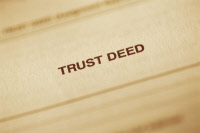 For this reason, it is important when appointing yourself as trustee and beneficiary of your trust, to include other trustees in order to ensure that you do not have total control over the trust – Joe has benefited from the asset and has enjoyed the full use of it and will therefore have to pay estate duty tax on this asset.
For this reason, it is important when appointing yourself as trustee and beneficiary of your trust, to include other trustees in order to ensure that you do not have total control over the trust – Joe has benefited from the asset and has enjoyed the full use of it and will therefore have to pay estate duty tax on this asset.
In the example above, if the asset Joe placed into the trust was a house valued at R1 000 000, this would have been included in his estate as deemed property to the value of R1 000 000.
Property accruing to a surviving spouse - Section 4(q)
No deduction will be allowed under section 4(q) where the bequeathed property accrues to a trust which was established by the deceased for the benefit of the surviving spouse, if the trustee has discretion to allocate the trust property or income to any person other than the surviving spouse. Clearly therefore, a discretionary trust where the trustee is entitled to allocate trust income to someone other than the surviving spouse, is not envisaged by section 4(q) and accordingly no deduction will be allowed.
Should my trust own all my life insurance policies?
The policy as a financial planning solution
We are of the view that the biggest consideration when structuring a policy is not in terms of tax but rather in terms of the actual need of the client.
One should always keep this in mind when deciding on ownership of a policy.
If for example you would like your spouse to receive the proceeds of a policy on your death, then you should own the policy with your wife nominated as a beneficiary. If the policy is owned by a trust your spouse will not have a right to the proceeds on your death but rather a “hope” that the trust will distribute the proceeds to her in the form of income or capital.
The trust itself would have to be an inter vivos trust (living trust). This has been problematic in the past because if the policy is trust owned then generally we find that inter vivos trusts have more than one beneficiary (usually spouse, children, siblings, etc.). Depending on how the trust is structured it is possible that the proceeds could be shared amongst beneficiaries of the trust that were not initially intended by you.
Is there a saving of estate duty?
In terms of the Estate Duty Act a policy forms part of the life assured’s estate for estate duty purposes. This essentially means that if the deceased has exhausted their R3 500 000 abatement, potentially 20% of the proceeds value could go to SARS if a trust is a beneficiary.
Most insurance policies, save for certain specified policies, taken on the life of an individual will be deemed to be “property” forming part of the deceased’s estate for the determination of estate duty payable. The deceased estate will potentially be subject to estate duty at the rate of 20% up to 25% on any amount in excess of the R3.5 million abatement.
There is, however, some relief as set out in section 3(3)(a). Other than the section 4(q) spousal relief, in the event that a policy is proposed by a person other than the deceased, e.g. a trust, then all the premiums paid on the policy plus a 6% interest per annum calculated from the date of inception of the policy to the date of death of the assured shall be deducted from any potential estate duty due.
This benefit is available if a person other than the deceased is the owner of the policy, pays the premiums on the policy and further is the person entitled to recover the proceeds of the policy, i.e. the beneficiary. The relief may be obtained by structuring the life policy to be owned by a trust.
If the need of the policy is so that your spouse has much needed capital on your death and your spouse is therefore nominated as the beneficiary then the entire proceeds will qualify for the Sec 4(q) deduction in terms of the Estate Duty Act. This means that none of the proceeds will be dutiable.
Protection from insolvency
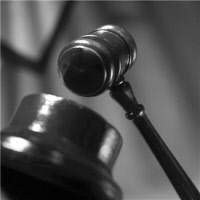 One of the other “big” advantages marketed by companies marketing trust owned policies is that one’s life policy is protected on the death of the life assured when it is trust owned. In terms of Shrosbee NO v Love (SCA) 2005 the court found that the proceeds of a life policy does not form part of a deceased’s insolvent estate.
One of the other “big” advantages marketed by companies marketing trust owned policies is that one’s life policy is protected on the death of the life assured when it is trust owned. In terms of Shrosbee NO v Love (SCA) 2005 the court found that the proceeds of a life policy does not form part of a deceased’s insolvent estate.
The nominated beneficiary has a right to the proceeds on the death of the life assured and the creditors of the deceased cannot therefore attach the proceeds payable to the beneficiary. In terms of this precedent, pure risk policies are therefore protected on the death of the insolvent and it is therefore not necessary for the risk policy to be owned by a trust.
It is only in cases where the owner goes insolvent prior to death and the curator changes the nomination that this will not be the case. Even in this scenario if the trust owned the policy the premiums would still need to be paid and unless the trust has the cash for this, the policy could lapse and the whole exercise could be futile.
Should a trust own an income replacement policy?
Premiums paid on an income replacement product are deductible in terms of Sec 11(a) of the Income Tax Act. This deduction is not available to trusts. Also remember that in terms of Para 55(1)(a) of the Income Tax Act when the proceeds of a policy pays out to the original beneficial owner of a policy, the proceeds are exempt from CGT. If you cede a policy to a trust then the proceeds may be subject to CGT depending on whether or not you originally nominated the trust as a beneficiary.
When is there a need for trust owned policies?
Once again we must reiterate that there is a place in financial planning for trust owned policies. If for example there are debts that need to be covered (e.g. loans) in the trust then a policy on the life of a trustee could work to settle such debts on the death of such trustee.
A trust can also use proceeds of a life policy to care for a number of beneficiaries of a trust. The concern it seems is that many individually owned policies are not being replaced for these reasons but simply because clients are advised that all policies should rather be owned by the trust with no particular reasons.
All of the consequences need to be considered and explained to you before replacing/ceding individually owned polices with/to trust owned policies.
Source: Liberty Life - Legal; Moonstone; Marketing and Distribution:Learning RPL:Estate Duty March 2007
Special trusts
Special trusts are used to take care of people who are not able to manage their own finances. These trusts are therefore the ideal vehicle for disabled or mentally handicapped people who are unlikely to ever be financially independent.
However, you can also create a special trust to provide for minor children, until they turn 21, in the event of your death.
Tax advantage
 The income of a special trust is taxed at the rate applicable to individuals, which can be significantly lower than the tax rate applied to an ordinary trust .Capital gains tax is also lower within a special trust compared to ordinary trusts.
The income of a special trust is taxed at the rate applicable to individuals, which can be significantly lower than the tax rate applied to an ordinary trust .Capital gains tax is also lower within a special trust compared to ordinary trusts.
Simple and effective
A special trust is an effective way of providing for the financial future and well-being of minor children and can be created very simply by including it as a clause in your will. The trust will therefore only come into existence when you pass away. You need to specify that you are creating a trust for the benefit of your minor children. Although you don’t have to, it’s a good idea to stipulate that it is a special trust.
A trust is really only as effective as the trust deed which is the document defining the trust. You need to make sure that your trust deed is drafted by an expert attorney specialising in this field.
What to include:
The clauses of the will regulate how the trust will operate and cater for issues such as:
Who the beneficiaries and trustees are
You need to specify your children as beneficiaries. You also need to select trustees who will manage the funds on behalf of your children (not necessarily their elected guardian/s).
How capital is to be invested
When drawing up your will you need to decide which assets the trust will acquire. You can leave R3.5 million to the trust
without paying estate duty. Although you are able to leave your entire estate to your spouse without incurring estate duty, by allocating a portion of your estate for your children in a special trust you can provide for your children separately and secure their inheritance.
A certain amount of liquidity will be required to meet the income needs of the beneficiaries and this is where the role of life cover should not be under estimated. The trust can own a life policy on your life which will pay out when you pass away.
How the trust is to be managed
In your will you need to stipulate the amount of income and capital to which beneficiaries are entitled and under which circumstances additional monies may be paid out. For example, the children would be entitled to a certain amount of income a year and additional funds may be paid out for their education.
Providing for disabled dependants
Special trusts to provide for handicapped children can be created during your lifetime and do not then form part of your will. This type of trust is registered with SARS as a special trust and the same provisions as described above will apply. Source: Michelle Human: Liberty Legal Marketing
 The representatives (if any) are not authorized to deal in any financial product, and / or in any financial product [including Wills and Trust] for own benefit where these dealings are based upon advanced knowledge. Such dealings will be done in conjunction with the product suppliers / providers / Insurance Company / Trust Company / Attorneys if required. Boedel. Testament.
The representatives (if any) are not authorized to deal in any financial product, and / or in any financial product [including Wills and Trust] for own benefit where these dealings are based upon advanced knowledge. Such dealings will be done in conjunction with the product suppliers / providers / Insurance Company / Trust Company / Attorneys if required. Boedel. Testament.
Any product information [legal and / or technical] on this webpage is subject to change from time to time. This webpage is a summary of some financial products / different product features and is not to be construed as advice by Procon Insurance Brokers. Any recommendations made must take into consideration your specific needs and personal circumstances. Procon. Procon Insurance Brokers.Pretoria {Boedel. Testament}
Enige produk inligting [wetlik en / of tegnies] op hierdie webblad is van tyd tot tyd aan verandering onderhewig. Hierdie webblad is ’n opsomming van sommige finansiële produkte / verskeie produkte se kenmerke en moet nie as advies deur Procon Versekeringsmakelaars beskou word nie. Enige aanbevelings wat gemaak word, moet jou spesifieke behoeftes en persoonlike omstandighede in ag neem.Procon. Procon Versekeringsmakelaars. Pretoria


